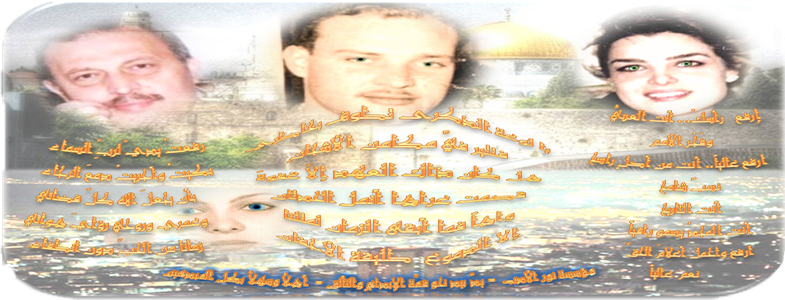 |
 |
||||||||
|
|||||||||
|
|||||||||
|
|
|
رقم المشاركة : [1] | |
|
أديبة ومترجمة / مدرسة رياضيات
           
|
The lover is outcast and idle.Yunus Emre a sufi mystic poet
My soul,
the way of the masters is thinner than the thinnest. What blocked Solomon's way was an ant. Night and day the lover's tears never end, tears of blood, remembering the Beloved. "The lover is outcast and idle," they used to tell me. It's true. It happened to me. I tried to make sense of the Four Books, until love arrived, and it all became a single syllable. You who claim to be dervishes and to never do what God forbids -- the only time you're free of sin is when you're in His hands. Two people wer talking. One said, "I wish I could see this Yunus." "I've seen him," the other says, "He's just another old lover." ************************************************** **** Yunus Emre (1238?–1320?) was a Turkish poet and Sufi mystic. He has exercised immense influence on Turkish literature, from his own day until the present. Because Yunus Emre is, after Ahmet Yesevi and Sultan Veled, one of the first known Turkish poets to have composed works in the spoken Turkish of his own age and region rather than in Persian or Arabic, his diction remains very close to the popular speech of his contemporaries in Central and Western Anatolia. This is also, it should be noted, the language of a number of anonymous folk-poets, folk-songs, fairy tales, riddles (tekerlemeler), and proverbs. Like the Oghuz Turkic Book of Dede Korkut, an older and anonymous Central Asian epic, the Turkish folklore that inspired Yunus Emre in his occasional use of tekerlemeler as a poetic device had been handed down orally to him and his contemporaries. This strictly oral tradition continued for a long while. ] Following the Mongol invasion of Anatolia facilitated by the Seljuk Turkish defeat at the 1243 Battle of Köse Dağ, Islamic mystic literature thrived in Anatolia, and Yunus Emre became one of its most distinguished poets. He is one of the first poets known by name to have composed extensively in the Turkish language, and his poems—despite being fairly simple on the surface—evidence his skill in describing quite abstruse mystical concepts in a clear way. He remains a popular figure in a number of countries, stretching from Azerbaijan to the Balkans, with seven different and widely dispersed localities disputing the privilege of having his tomb within their boundaries. نور الأدب (تعليقات الفيسبوك) |
|
|
|

|
|
 |
| مواقع النشر (المفضلة) |
«
الموضوع السابق
|
الموضوع التالي
»
| الذين يشاهدون محتوى الموضوع الآن : 1 ( الأعضاء 0 والزوار 1) | |
| أدوات الموضوع | |
|
|
 المواضيع المتشابهه
المواضيع المتشابهه
|
||||
| الموضوع | كاتب الموضوع | المنتدى | مشاركات | آخر مشاركة |
| Mahmmoud Darwish, a poet from Palestine | عبدالله الخطيب | Building bridges of knowledge | 0 | 16 / 07 / 2009 02 : 07 AM |
الساعة الآن 02 : 12 PM
|
|
















